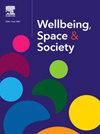食品安全举措的文化相关性及其对加拿大移民文化认同的相关影响:食品不安全文献的范围审查
IF 2.2
Q2 GEOGRAPHY
引用次数: 0
摘要
有证据表明,加拿大的黑人移民极易受到粮食不安全的影响,目前的干预措施不能充分满足他们的粮食需求。然而,在解决加拿大黑人移民的食物需求方面,探索食品安全干预空间中的文化相关性和服务缺口的科学研究有限。本研究回顾了相关数据库的文献:CINAHL、OVID-MEDLINE、Academic Plus和SocINDEX,并回顾了灰色文献。定性、定量和混合方法的同行评议论文,如果它们关注的是社区食品项目、服务和倡议,关注的是加拿大食品不安全的黑人识别人群,用英语写作,并在2000年至2023年之间发表。综合揭示了几个障碍,包括缺乏熟悉的食物选择、交通、民族食品商店的地理位置和财务挑战,这些都是现有研究中确定的限制新来者获得现有干预措施的因素。此外,社会文化因素与在使用慈善支持方面的耻辱观念以及就业和移民方面的歧视有关,这些因素加剧了粮食不安全的黑人移民原有的脆弱性。由于现有干预措施的文化相关性有限,识别黑人的移民面临粮食和文化粮食不安全的风险。为了系统地解决加拿大黑人个体中不断升级的粮食不安全问题,必须注意解决个人社会文化食物需求的重要性,并承认食物是整体支持整体健康的文化认同的一种手段。本文章由计算机程序翻译,如有差异,请以英文原文为准。
Cultural relevance of food security initiatives and the associated impacts on the cultural identity of immigrants in Canada: A scoping review of food insecurity literature
Evidence shows that Black identifying immigrants in Canada are highly vulnerable to food insecurity and that current interventions do not adequately meet their food needs. However, limited scientific studies exist that have explored the cultural relevance and the service gaps in the food security intervention space for addressing the food needs of Black identifying immigrants in Canada. This research involved a review of literature from relevant databases: CINAHL, OVID-MEDLINE, Academic Plus, and SocINDEX and a review of the gray literature. Qualitative, quantitative, and mixed methods peer-reviewed papers were included if they focused on community food-based programs, services, and initiatives, focused on food-insecure Black-identifying populations in Canada, were written in English, and published between 2000 and 2023. The synthesis reveals several barriers including the lack of familiar food options, transportation, the geographical location of the ethnic food stores, and financial challenges were identified in the existing studies as factors that limit access to the existing interventions by the newcomers. Additionally, sociocultural factors related to perceptions of stigma in the use of charitable support and discrimination in employment and migration that compound the pre-existing vulnerabilities of food-insecure Black identifying immigrants. Black-identifying immigrants are at risk of food and cultural food insecurity due to the limited cultural relevance in the existing interventions. To systematically address escalating food insecurity among Black-identifying individuals in Canada, attention must be directed to the importance of addressing an individual's socio-cultural food needs and acknowledging food as a means to cultural identity that holistically supports overall health.
求助全文
通过发布文献求助,成功后即可免费获取论文全文。
去求助
来源期刊

Wellbeing Space and Society
Social Sciences-Social Sciences (miscellaneous)
CiteScore
2.70
自引率
0.00%
发文量
46
审稿时长
124 days
 求助内容:
求助内容: 应助结果提醒方式:
应助结果提醒方式:


